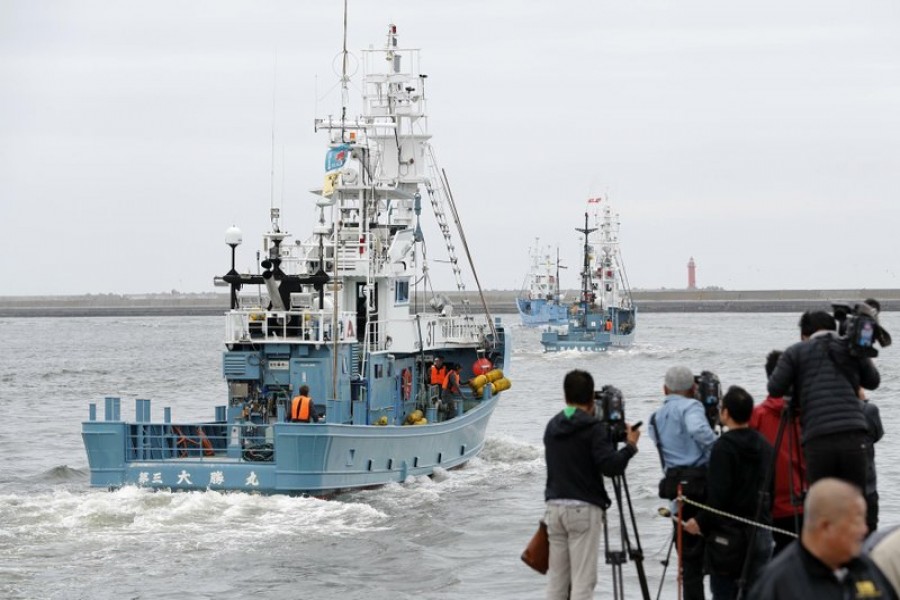
Published :
Updated :

Five Japanese whaling vessels have set sail for the country's first commercial hunt in decades, in defiance of international criticism.
The whaling ships have a permit to catch 227 whales - minke, Bryde's and sei - before the end of the year.
Japan's last commercial hunt was in 1986 but it has continued whaling for what it says was research purposes.
It has now withdrawn from the International Whaling Commission (IWC) so is no longer subject to its rules.
IWC members had agreed to an effective ban on whale hunting, but Japan has long argued it is possible to hunt whales in a sustainable way, the BBC reported.
Enthusiasm among whalers
The fisheries ministry has set a kill cap for the season of 52 minke, 150 Bryde's and 25 sei whales.
"The resumption of commercial whaling has been an ardent wish for whalers across the country," the head of the agency, Shigeto Hase, said at a departure ceremony in northern Kushiro for the small fleet.
He said the resumption of whaling would ensure "the culture and way of life will be passed on to the next generation."
"My heart is overflowing with happiness, and I'm deeply moved," Yoshifumi Kai, head of the Japan Small-Type Whaling Association, said. "People have hunted whales for more than 400 years in my home town."
Criticism by conservationists
According to the IUCN Red List of Threatened Species, minke and Bryde's whale are not endangered. Sei whale are classified as endangered but their numbers are increasing.
Conservationist groups like Greenpeace and Sea Shepherd remain critical of Japan's resumption of whaling but say there are no concrete plans for action against the country.
Japan "is out of step with the international community", Sam Annesley, executive director at Greenpeace Japan, said in a statement when Tokyo announced its whaling plans last year.
Like other whaling nations, Japan argues hunting and eating whales are part of its culture.
A number of coastal communities in Japan have hunted whales for centuries but consumption only became widespread after World War Two when other food was scarce.
Didn't Japan kill whales all along?
Whales were brought to the brink of extinction by hunting in the 19th and early 20th Century. In 1986, all IWC members agreed to a hunting moratorium to allow whale numbers to recover.
Whaling countries - like Japan, Norway and Iceland - assumed the moratorium would be temporary until everyone could agree on sustainable quotas. Instead it became a quasi-permanent ban.
Since 1987, Japan has killed between 200 and 1,200 whales each year under an exemption to the ban allowing scientific research.
Critics say this was just a cover so Japan could hunt whales for food, as the meat from the whales killed for research usually did end up for sale.
In 2018 Japan tried one last time to convince the IWC to allow whaling under sustainable quotas, but failed. So it left the body, effective July 2019.


 For all latest news, follow The Financial Express Google News channel.
For all latest news, follow The Financial Express Google News channel.